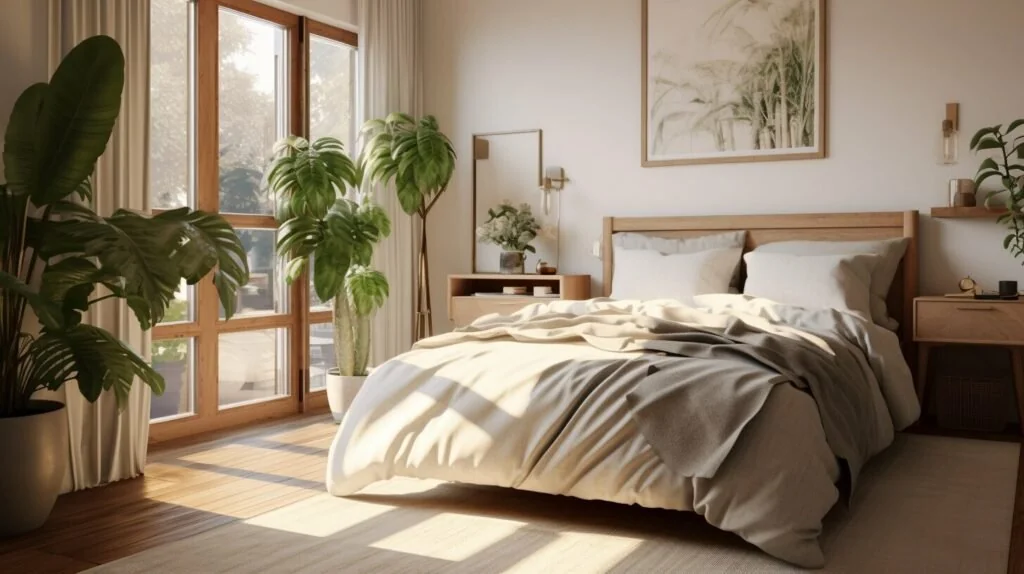Understanding Feng Shui for Balanced Living Spaces
Understanding Feng Shui is the key to transforming your home into a peaceful, supportive sanctuary using the timeless principles of energy flow and balance.
Key Takeaways
- Create harmony by aligning your home with Feng Shui principles
- Balance the five elements for better well-being and energy
- Simple changes like decluttering and natural light go a long way
What Is Feng Shui?
Feng Shui, meaning “wind and water,” is an ancient Chinese practice focused on aligning our environment with positive energy or chi. It’s about creating harmony in our homes by using strategic design, placement, and natural elements. [Wikipedia] | What Is Feng Shui – The Spruce | What Feng Shui Means – Real Simple
At its core, understanding Feng Shui means seeing your home not just as a shelter, but as a living, breathing environment that responds to your thoughts, emotions, and habits. When you adjust your home using Feng Shui principles, you’re not just moving objects—you’re shifting the energy patterns that influence your daily life. Think of it as acupuncture for your home: clearing blockages, enhancing flow, and inviting harmony.

The Five Elements: Nature’s Building Blocks
Understanding Feng Shui involves balancing five elements—Wood, Fire, Earth, Metal, and Water. Each brings its own vibe:
- Wood: Encourages growth and creativity.
- Fire: Sparks passion and motivation.
- Earth: Provides stability and security.
- Metal: Represents clarity and precision.
- Water: Invites calm, wisdom, and adaptability.
Each element also corresponds with colors, shapes, and emotions. For example, Wood is associated with the color green and the shape of a rectangle, while Fire links to red and triangular forms. By intentionally integrating these into your décor—such as a green plant (Wood) in a rectangular pot in your office—you create energetic alignment that supports your goals.

Applying Feng Shui in Your Home
1. Declutter Your Space
Clutter blocks energy flow. Keep your home tidy to allow fresh chi to circulate freely. A clean environment supports clear thinking and emotional ease.
2. Mindful Furniture Placement
Furniture should allow smooth movement and face welcoming directions. Your main seating should let you see the door while feeling grounded.
3. Embrace Natural Light
Let sunlight in! It enhances energy and positivity. Clean your windows, use sheer curtains, and add mirrors to amplify natural light.
4. Incorporate Plants
Plants breathe vitality into your space. Choose air-purifying greenery like peace lilies or bamboo palms to support serenity and health.
5. Use Mirrors Wisely
Mirrors can reflect positive energy or bounce it out. Avoid facing them toward doors and instead reflect beautiful views or meaningful objects.
Feng Shui Tips for Specific Rooms

Bedroom
Your bed should offer a clear view of the door without being in line with it. Use calming colors and add cozy textures. Find detailed guidance in our feng shui bedroom layout principles.
Living Room
Arrange seating for social connection, include joyful artwork, and add soft lighting to create a nurturing vibe.
Kitchen
This room symbolizes nourishment. Keep it bright and clean, and use vibrant colors like red and orange to energize. A bowl of fruit can draw abundance.

Bathroom
Since bathrooms can drain energy, keep toilet lids closed and doors shut. Add life with plants, fresh towels, and soft lighting to mimic a relaxing spa.
Understanding Feng Shui isn’t about rigid rules—it’s about tuning into your space and adjusting it to support your well-being. Small, thoughtful changes can dramatically shift the energy in your home and your life.
FAQ
- Is Feng Shui just about furniture placement?
- No—it’s a holistic system involving color, materials, light, intention, and energy flow.
- Can I practice Feng Shui in a small space?
- Absolutely. Even small apartments benefit from Feng Shui when energy is honored through layout and clutter reduction.
- Is Feng Shui compatible with modern decor?
- Yes! It’s about balance, not aesthetics. You can maintain your style while applying Feng Shui principles.
Learn more in our guide to Feng Shui color balance and minimalist bedroom setup. Also explore eco-friendly Feng Shui tips.
For beginner guidance, visit Feng Shui Tips for Beginners – The Spruce.























